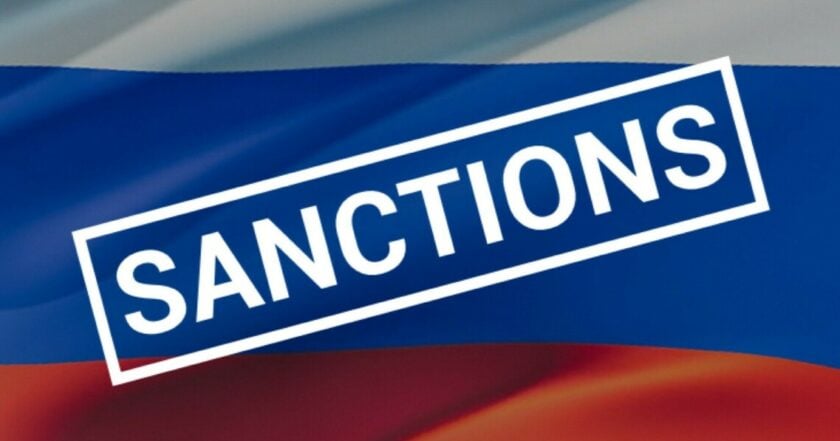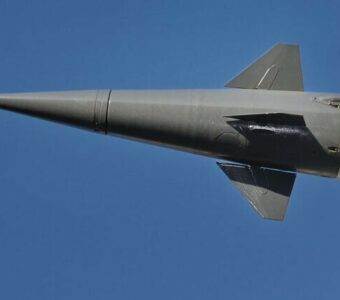United to win: EU Council approves six-month extension of sanctions against Russia

Photo: open sources
The Council of the EU today extended the economic sanctions against Russia in connection with the aggression against Ukraine for the next six months.
This is reported in a message on the EU Council website.
The EU first introduced these sanctions in 2014 in response to Russia's actions in Ukraine. Since February 2022, they have been greatly expanded in response to a full-scale Russian war. Currently, the sanctions have been extended until July 31, 2024.
"The Council today renewed for a further six months its restrictive measures given the Russian Federation's continuing actions destabilizing the situation in Ukraine until 31 July 2024.
These sanctions, first introduced in 2014 in response to Russia's actions destabilizing the situation in Ukraine, were significantly expanded since February 2022 in response to Russia's unprovoked, unjustified, and illegal military aggression against Ukraine," the document says.
As noted, the EU's restrictive measures against Russia include a wide range of sectoral measures:
- restrictions on trade, finance, technology and dual-use goods, industry, transport and luxury goods;
- a ban on the import or transfer of marine crude oil and certain petroleum products from Russia to the EU;
- disconnection from SWIFT of several Russian banks;
- suspension of broadcasting and licenses of several Russian propaganda channels;
- restriction of economic relations with occupied Crimea, captured territories of Ukraine in Donetsk, Kherson, Luhansk, and Zaporizhzhia regions;
- individual sanctions (freezing of assets and restrictions on travel) against a wide range of individuals and legal entities, etc.
Separately, the EU takes measures to avoid circumventing the mentioned economic sanctions. It is emphasized that the EU considers it necessary to maintain all sanctions as long as Russia continues to use force and violate international law.
As reported, on July 31, 2014, the Council of the EU adopted decision 2014/512/CFSP (Common Foreign and Security Policy – ed.) on applying restrictive measures given Russia's actions to destabilize Ukraine.
In addition, the EU has taken several restrictive measures in response to the actions of the Russian Federation directed against Ukraine, including a ban on economic relations with the temporarily occupied territories of Ukraine, including Crimea and Sevastopol, as well as certain areas of the Donetsk, Kherson, Luhansk, and Zaporizhzhia regions, which are outside the control of the Ukrainian authorities.
Part of the mentioned restrictive measures is freezing financial assets and a travel ban for persons included in the sanctions list.
After February 24, 2022, the EU adopted 12 individual and sectoral economic packages in response to Russia's full-scale military invasion of Ukraine.
During the European Council on December 14-15, 2023, the leaders of the EU countries strongly condemned Russia's aggressive war against Ukraine, which is a flagrant violation of the UN Charter, and confirmed their unwavering support for the independence, sovereignty, and territorial integrity of Ukraine within its internationally recognized borders, as well as Ukraine's comprehensive right to self-defense against Russian aggression.
For reference:
As Rubryka reported, on December 18, the EU adopted the 12th package of economic and individual sanctions against Russia.
As the head of European diplomacy, Josep Borrell, stated, the EU proposed "a powerful set of new lists and economic measures that will further weaken the Russian military machine."
The sanctions package includes, in particular, a ban on the supply of machines that can be used to produce weapons.
The EU also wants to ban the import of liquid propane, cast iron, copper and aluminum wire, foil, and pipes. Also, many additional physical and legal entities were added to the list.
The critical point of the package remains the embargo on Russian diamonds from January 1, 2024. The EU also plans to gradually ban the import of Russian diamonds processed in third countries.
Earlier, the "Group of Seven" states, based on the results of the virtual summit held on December 6, announced their intention to introduce restrictions on Russian diamonds by January 1, 2024. In coordination with its G7 partners, Canada has introduced import restrictions on Russian diamonds and diamond jewelry.
At the same time, India called on the countries of the G7 to postpone the ban on the import of Russian diamonds.
According to the presidential office's calculations, Russia will lose 2 billion euros per year due to the new package of sanctions.
In addition, work has already begun on the thirteenth package of restrictions.
Ukraine has imposed multiple levels of sanctions against Russia and Kremlin-linked oligarchs. At the beginning of the invasion in 2022, the National Bank of Ukraine banned the circulation of the ruble and closed Russian state banks. Ukrainian courts are constantly confiscating Russian assets.






















































